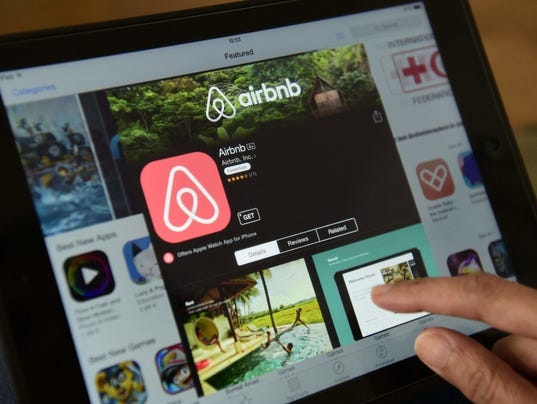
Councilwoman Angie Henderson has aptly described the impact of short-term rentals on our neighborhoods as “death by a thousand cuts.”
While the wilder “bachelorette” parties have gained the most media attention, it’s the day-in-day-out, week-in-week-out impact, which erodes the quality of life in our residential neighborhoods.
It’s the Uber or taxi doors slamming in the middle of the night. It’s the always a-little too loud music or conversations of a seemingly never-ending party piercing the quite enjoyment of your home.
Or it’s the gnawing worry of constantly changing strangers next door.
Short-term rentals literally take the “neighbor” out of our neighborhoods and replace them with tourists.
Airbnb has created a multibillion-dollar business by bending, circumventing, or even breaking the existing laws on transient housing in many communities.
Their objective has been to blur the lines between transient and long-term housing.
► Read More: Nashville’s emotional and divisive Airbnb debate
This has allowed Airbnb to create housing for tourists, without having to invest in real estate or management costs.
It gives them a competitive advantage against the traditional lodging industry. In the process, they have made housing less available and less affordable in many cities across not only the United States, but the world.
Until 2015, Nashville’s zoning ordinances defined “transient” housing as renting property for less than 30 days and was limited to our commercial and multi-family zoning districts.
Only long-term rentals were allowed in our residential zoned neighborhoods.
But in 2015, Nashville “blurred” the lines between residential and non-residential uses by adopting its current short-term rental ordinance as a “text change.”
This “text change” technically rezoned all property in Nashville without the usual notice of signs and mailings to affected property owners.
► Read More: We heard from hundreds of Nashville readers about Airbnb. Here’s what we learned.
Yes, your home was “rezoned” to allow short-term rentals on your property as well as every house next door to you.
While short-term rentals are promoted as “home sharing,” most in Davidson County are not owner-occupied; they are not homes.
The unintended consequences of short-term rentals have prompted city after city to either prohibit short-term rentals in their residential neighborhoods or to limit them significantly.
The Metro Council is now considering two competing visions for our neighborhoods.
Ordinance BL2017-608 by Councilman Larry Hagar and others would phase-out non-owner occupied short-term rentals from our residential neighborhoods.
It would still allow homeowners to rent out their own residence. But investor-owned short-term rentals, what are in effect “mini-hotels” would be phased out.
BL2017-608 re-establishes our neighborhoods for residential, not commercial uses.
The other ordinance, BL2017-937 by Councilman Jim Shulman, protects all the current short-term rentals in our neighborhoods. 937 would allow even more to be permitted.
In fact, 937 is broader than the current ordinance. For the first time, 937 clearly states non-owner occupied short-term rentals are “commercial uses” permitted in our residential neighborhoods.
We don’t allow other commercial businesses to operate in our residential neighborhoods.
We don’t allow recording studios, beauty parlors, lawyers offices, massage therapists, or any similar business to operate in our residential neighborhoods.
So why “mini-hotels”? For this reason, the Coalition FOR Nashville Neighborhoods, a group of activists whose only interest is protecting the quality of life in our residential neighborhoods, believes BL2017-937 is the most anti-neighborhood ordinance proposed in years.
The lobbyist for Airbnb has drawn a line in the sand.
Which side is your Council member on: Your neighborhood’s or Airbnb’s?
John Summers is a former Metro Council member and former Metro Planning Commission member. He chairs the Coalition FOR Nashville Neighborhoods.
